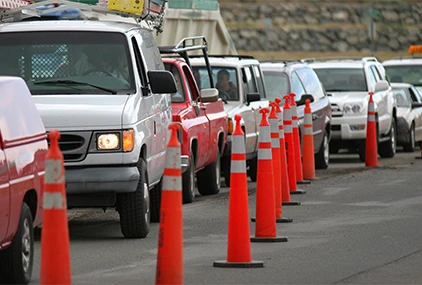Temporary Traffic Signs & Traffic Safety Training: Essential Tools for Safer Roads
When it comes to navigating our roads, safety should always be a top priority. Temporary traffic signs play a crucial role in guiding drivers and pedestrians alike, especially in construction zones or during public events. But simply setting up these signs isn't enough; understanding best practices and regulatory standards is essential for creating a safe environment on the streets. This article delves into the importance of temporary traffic signs and highlights effective traffic safety training methods that can help protect everyone on the road. Let’s explore how we can make our travels safer together!
Best Practices for Setting Up Temporary Traffic Signs
Setting up temporary traffic signs requires careful
planning and execution. First, it’s vital to assess the area where the signs
will be placed. Identify potential hazards and determine the best locations for
visibility.
Use high-visibility materials. Reflective surfaces enhance sign readability,
especially in low-light conditions. Ensure that all text is clear and easy to
read from a distance.
Proper placement is another key factor. Signs should be positioned at eye level
for drivers and pedestrians, avoiding obstructions like trees or utility poles.
Consider using cones or barriers to draw attention to critical signage.
Regular maintenance checks are essential. Inspect signs frequently for damage
or wear, ensuring they remain effective throughout their intended duration of
use. By adhering to these practices, you can significantly improve road safety
while minimizing confusion among motorists and pedestrians alike.
Understanding Regulatory Standards for Temporary Signs
Best temporary
traffic signs play a crucial role in ensuring safety on our roads. However,
their effectiveness is largely dependent on adherence to regulatory standards.
Understanding these regulations helps maintain consistency and visibility for
drivers and pedestrians alike. Each state or municipality has specific
guidelines detailing sign size, color, placement, and reflectivity.
Familiarizing yourself with local codes can prevent costly mistakes.
Moreover, compliance not only enhances safety but also reduces liability risks.
When temporary signs are placed correctly according to established norms, they
provide clear instructions that everyone can understand.
Regular training sessions for those involved in setting up these signs are
essential. This ensures all team members are aware of the latest rules and best
practices. Keeping informed leads to better outcomes during construction
projects or emergencies where temporary signage is necessary.
Protecting Pedestrians and Drivers with Temporary Traffic Measures
Temporary traffic signs play a crucial role in ensuring the
safety of both pedestrians and drivers. When roadwork or unexpected hazards
arise, these signs help to communicate essential information quickly and
effectively. By guiding traffic safely around obstacles, they reduce confusion
and minimize the risk of accidents.
Implementing effective temporary measures requires careful planning. Clear
visibility is key; ensure that signs are not obstructed by foliage or other
objects. The placement should be strategic—consider sightlines for drivers approaching
from various angles.
Moreover, using reflective materials can enhance visibility at night or in poor
weather conditions. This simple change can make a significant difference in
capturing attention when it matters most.
Training personnel on proper setup protocols cannot be overlooked either. Traffic safety training
in Minneapolis equips individuals with the knowledge needed to position
these signs accurately while adhering to regulatory standards. Proper training
ensures everyone understands their responsibilities, leading to safer
environments for all road users.
Prioritizing pedestrian and driver protection through well-placed temporary
traffic signs fosters safer roads for communities everywhere.


Comments
Post a Comment